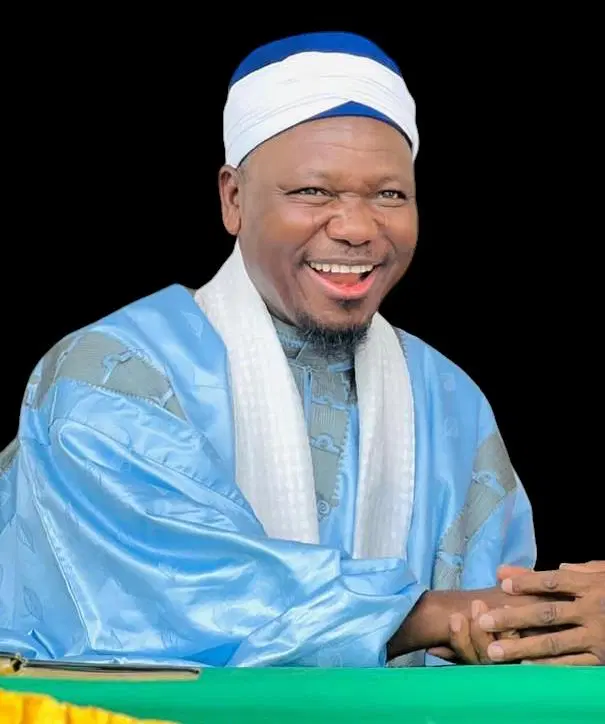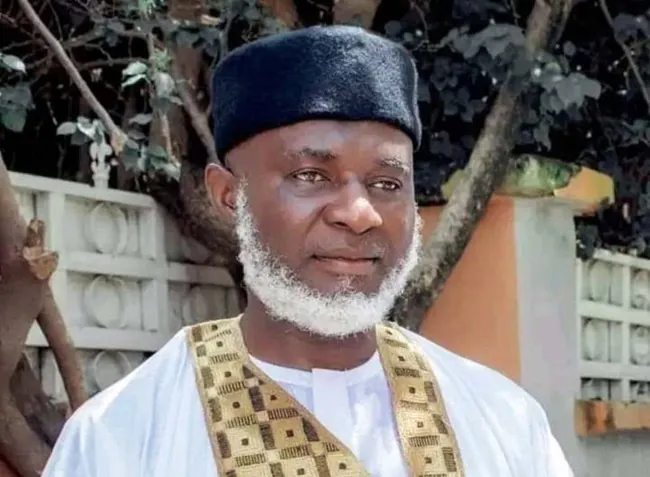The Abuja Central Mosque, one of the most iconic religious landmarks in Nigeria, has a rich history that began in the early 1980s. The mosque’s origin is closely tied to Nigeria’s decision to relocate its capital from Lagos to Abuja under the leadership of President Shehu Shagari.
In 1981, prominent Islamic leaders from various parts of Nigeria proposed the idea of building a central mosque in Abuja. Their goal was to create a place of worship that would also represent the unity and identity of Muslims across the country. The project aimed to attract financial support both locally and internationally.
The concept quickly gained traction among the Nigerian Muslim community, leading to the establishment of the Abuja National Mosque Council. This council was formed to coordinate fundraising efforts and oversee the entire development process.
Sultan Abubakar III, a respected leader in the Muslim world, chaired the council. He was instrumental in mobilizing funds and rallying support for the national project. Construction officially began in 1981 and was completed by 1984.
Aims Construction Limited carried out the building works, while the architectural design was handled by AIM Consultants Limited. The overall project was managed by Lodigiani Nigeria Ltd as the general contractor.
The mosque stands out as a masterpiece of modern Islamic architecture in Nigeria. Its massive golden dome and four towering minarets dominate the Abuja skyline, making it a popular destination for visitors and tourists alike.
Although the physical structure was completed in 1984, the Abuja National Mosque officially opened to the public in 1991. This was the same year Abuja was formally declared the new capital of Nigeria, enhancing the mosque’s national significance.
Today, the mosque can accommodate approximately 25,000 worshippers at a time. It also includes additional facilities such as an Islamic center, a public library, a conference hall, and living quarters for religious leaders.
The mosque is open to the public and welcomes tourists, including non-Muslims, who are free to visit outside of designated prayer times. This policy has made it a key attraction for anyone interested in Islamic culture or Nigerian religious history.
In recent years, the leadership and management of the Abuja National Mosque have evolved. Professor Shehu Ahmad Galadanci currently serves as the Murshid, overseeing both the spiritual and administrative aspects of the mosque’s operations.
If you’re exploring tourist attractions in Abuja or studying the history of Islamic architecture in Nigeria, the Abuja National Mosque is a must-visit landmark that beautifully blends cultural, religious, and architectural heritage.
The table below provides detailed information about the key entities involved in its conception, design, and construction:
| Aspect | Details |
|---|---|
| Project Initiation | The idea for the mosque was proposed in 1981 by prominent Muslim leaders across Nigeria, aiming to create a national place of worship symbolizing unity for the Nigerian Muslim community. |
| Supervising Council | Abuja National Mosque Council, chaired by Sultan Abubakar III, the 17th Sultan of Sokoto and President-General of the Nigerian Supreme Council for Islamic Affairs. |
| Architect | AIM Consultants Ltd., a Nigerian architectural and planning firm. |
| General Contractor | Lodigiani Nigeria Ltd., responsible for overseeing the construction process. |
| Construction Company | Aims Construction Limited executed the building of the mosque. |
| Construction Timeline | Groundbreaking began in 1982, and construction was completed in 1984. |
| Official Opening | Although completed in 1984, the mosque was officially opened in 1991, coinciding with Abuja’s designation as Nigeria’s capital. |
| Location | Independence Avenue, Abuja, Nigeria, directly opposite the National Christian Centre, highlighting interfaith harmony. |
| Architectural Features | The mosque features a large gold-anodized dome, four minarets each approximately 120 meters tall, a library, conference hall, and a religious school. |
Who Is The Current Chief Imam Of Central Mosque Abuja?
The Abuja National Mosque, also known as the National Mosque of Nigeria, is the largest mosque in Africa and serves as a central place of worship for Muslims in the Federal Capital Territory. The mosque is located on Independence Avenue in Abuja, opposite the National Christian Centre. It was completed in 1984 and is open to the non-Muslim public, except during congregational prayers .
The leadership structure of the mosque has evolved over time. Following the passing of the former Chief Imam, Sheikh Musa Muhammad, in 2015, the position of Chief Imam was abolished. In October 2017, the Nigerian Supreme Council for Islamic Affairs approved the dissolution of the Abuja National Mosque Management Board, and a new administrative structure was established. Professor Shehu Ahmad Said Galadanci was appointed as the Murshid (grand instructor and general administrator) of the mosque, combining the roles of Chief Imam and administrative head. He was assisted by three co-equal Imams: Professor Ibrahim Ahmad Maqari, Sheikh Ahmad Onilewura, and Dr. Muhammad Kabir Adam .
In December 2024, the Nigerian Supreme Council for Islamic Affairs approved the appointment of Dr. Abdulkadir Salman Jummu’ah Solagberu as the new Chief Imam of the Abuja National Mosque. Dr. Solagberu is the first Maalami Ubandoma of the Ilorin Emirate and the founder of Darul Kitaab Wa Sunnah, an institution dedicated to Arabic and Islamic studies .

The mosque’s architectural design includes two large domes and four minarets, and it houses a library and conference room. The complex also includes a conference centre capable of serving six hundred persons, the office for the Islamic Centre, and residential facilities for the imams and muazzins .
Who Was The First Igbo Imam Of Central Mosque Abuja?
Professor Iliyasu Usman Tochukwu made history on October 18, 2024, by becoming the first Igbo Muslim appointed as an Imam at the Abuja National Mosque. This landmark event signifies a significant step towards inclusivity and representation within Nigeria’s Islamic leadership.

Key Facts About Professor Iliyasu Usman Tochukwu:
- Name: Professor Iliyasu Usman Tochukwu
- Ethnicity: Igbo
- State of Origin: Enugu State, Nigeria
- Academic Achievement: First Professor of Arabic in Igboland
- Date of Appointment: October 18, 2024
- Role: Appointed as an Imam at the Abuja National Mosque
- Inaugural Sermon: Delivered his first khutbah during Jumu’ah prayer on the day of his appointment
- Collaborating Imams: Joins Professors Ibrahim Makari and Muhammad Kabir in leading prayers
- Significance: His appointment is a testament to the growing inclusivity within Nigeria’s Islamic community, recognizing the contributions of Igbo Muslims
Professor Usman’s appointment has been widely celebrated, particularly by the South East Muslim Organisation of Nigeria (SEMON), which views it as a recognition of his dedication to Islamic scholarship and leadership. The Nigerian Supreme Council for Islamic Affairs (NSCIA), under the leadership of the Sultan of Sokoto, Alhaji Muhammad Sa’ad Abubakar, has also been commended for fostering inclusivity in religious leadership across the country.
This historic appointment not only honors Professor Usman’s personal achievements but also symbolizes a broader commitment to unity and diversity within Nigeria’s religious landscape.
